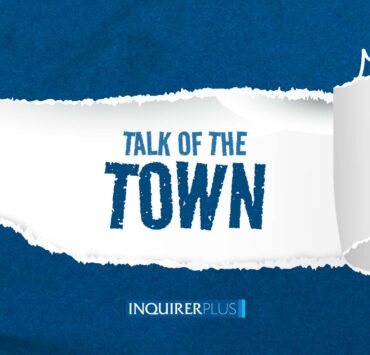Reading slowly, remembering deeply

Growing up in a lumad community, I learned to imagine an invisible hand taking me from word to word, from sentence to sentence, from curiosity to awareness, from ignorance to consciousness. The words guided me into the past, the present, and the possibilities ahead.
Sometimes we read to understand the future. At times, we read to make sense of the past. We read to lose ourselves, to step away from the weight of the present, and we read to honor those who walked before us, who endured even heavier burdens. For those very reasons, I write.
I learned from my father that the deeper I immersed myself in reading books, the more slowly I read, savoring each sentence, the quieter the outside world became. Unlike my siblings and friends, who raced through pages, I always read slowly–very slowly.
Long before Google, Netflix, or even cellphones, people shared ideas, information, and history through stories, a tradition known as oral history. This is actually one of our earliest forms of communicative technology. In Mindanao, stories of ancestors resisting foreign invaders, like the battle in which Maas Ilidji defended Mactan from Magellan, were passed down in whispers. He is known to be a legendary warrior and leader from Sulu, embodying the courage, wisdom, and ingenuity of our ancestors, showing that defending one’s land and culture often requires both strategy and heart. His story reminds me that heroism is about preserving the narratives and identity of our people.
These stories were a way to teach learners that our land was protected and preserved, a narrative alive into the 21st century.
Before moving to Davao City, my family lived in one of the most remote areas of Davao Occidental, in a community called Caburan. The early settlers there, the Sarangani Manobo and Blaan, were descendants of people who had been denied the right to read or write. Imagine the danger of understanding letters, forming words in one’s own language, and telling one’s own stories, as literacy itself was seen as a threat. Yet, despite being marginalized and silenced for preserving their narratives, their stories endured. Beneath the official history, other narratives thrived. This layering of stories—the story within a story—is how history and culture endure.
As the pace of life accelerates, I deliberately choose to move more slowly. Following the words carefully has shaped my life, guiding me to write books for readers of all ages, works meant to be read slowly, savored, and reflected upon.
My love for observing the world closely, for immersing myself fully in it, and for exploring the countless possibilities within each story has become a gift. By taking my time, reading slowly, and reflecting deeply, I learned everything I needed to know about writing. Writing, in turn, showed me how to create worlds where people could be truly seen and heard, where their experiences are respected and legitimized. And when my words reach another person, they spark a connection, a quiet conversation, a shared moment of understanding.
This is why I write slowly, savoring every sentence, because in doing so I honor both the generations of ancestors and the reader whose stories guide me. Writing is a way to ensure that no one feels alone and that we leave the world slightly changed before we depart. From curiosity to fire, from stone to hammer, from ancestor to story, from thought to narrative—and all of it remembered.
In connecting my own journey with the silenced peoples of Mindanao, I began to connect the dots. I realized that my story is bigger, older, and deeper than myself, and will continue beyond me. Among these peoples were those who never learned to read, yet their descendants, if circumstances allowed, achieved higher education and acquired better jobs.
Some, like my father, driven by a love for volunteer work and helping communities, eventually kissed the South goodbye. But even those who stayed carried forward history through oral stories, songs, and real-life memories. They knew that writing is not the only way to preserve knowledge.
As technology pushes us forward, I continue to read slowly, honoring the life and work of our Indigenous communities and the enduring power of their stories. I read to remember my ancestors, who worked the fields, sailed the seas, and gathered in the evenings, dreaming quietly, teaching softly.
Each story we read, write, or tell steps into its circle, keeping it unbroken. The power of story lives on in Mindanao. Let us, too, embrace this slow attention by seeking out and validating the narratives, both written and oral, from our most marginalized communities, for they are the unwritten chapters of our national soul.
In doing so, we ensure that the resilience and wisdom of our indigenous cultural communities, as well as that of countless others, become a shared legacy, protecting our history from the digital noise.
—————-
Francis “Isko” N. Reginio is an academic and social advocate specializing in policy analysis, human capital development, and community empowerment.

















